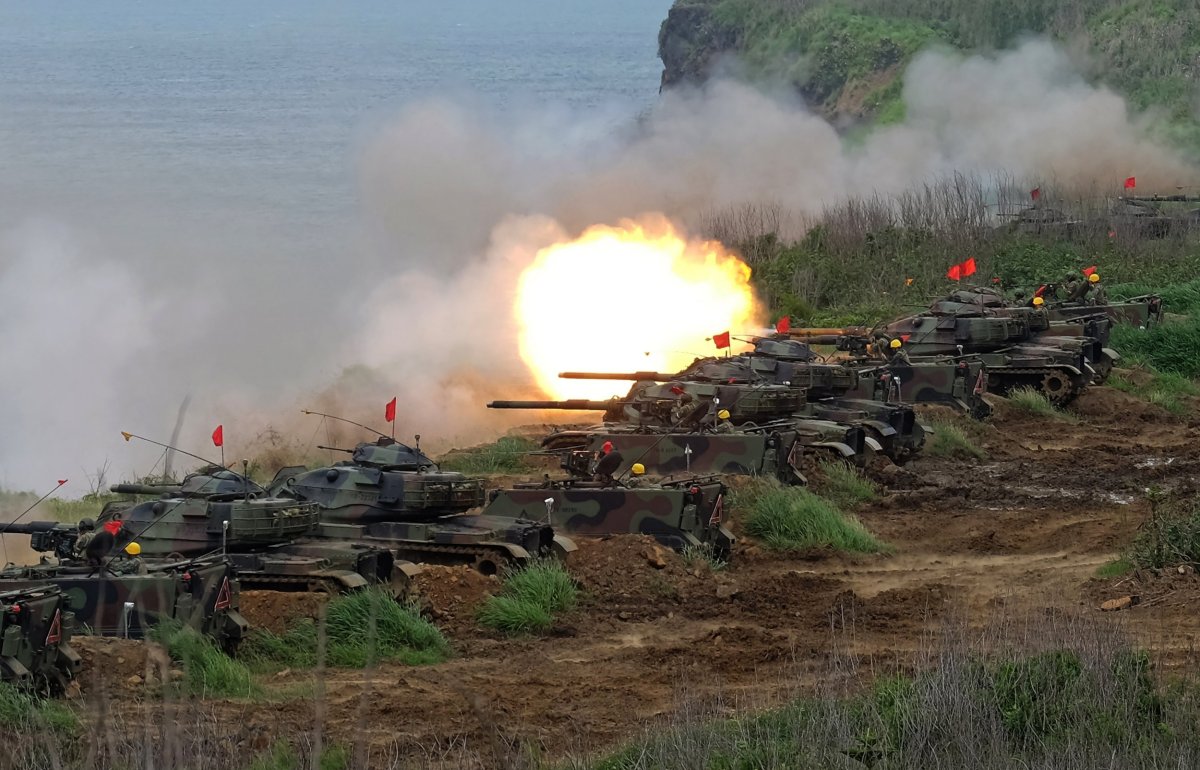A senior Chinese military general has warned an American admiral that Beijing will not tolerate U.S. efforts to interfere in China's relationship with Taiwan, as the two officials met to defuse tensions that have been simmering over the island and the South China Sea.
General Li Zuocheng—the head of China's Joint Staff Department—sat down with Admiral John Richardson on Monday as part of the latter's three-day trip to China, according to the South China Morning Post.
Read More: China sends warning to U.S. with more intense naval activity off Taiwan
China's defense ministry released a statement describing the "deep exchange" between the two men, which touched on the issues of Taiwan and the South China Sea, where U.S. and Chinese forces have been applying pressure on one another.
According to the statement, Li told Richardson, "The Taiwan issue is a matter of China's internal affairs which concerns China's core interests and the feelings of the Chinese people across the Taiwan Strait, and China will not allow any outside interference."
China considers Taiwan an intrinsic part of the country, regardless of its political independence. Under its "one-China" policy, the ruling Communist Party has always maintained its commitment to bring the island nation under Beijing's control.
Taiwan—officially known as the Republic of China—was the last remaining bastion of nationalist forces that lost the Chinese Civil War. It was made the Republic of China's capital in 1949.
Its status has been a diplomatic flashpoint between the U.S. and China for generations, with American lawmakers committed to weapons deals and military deployments to protect Taipei from a Communist Party takeover.
"If anyone wants to separate Taiwan from China, the Chinese military will safeguard the national unity at all costs so as to protect China's sovereignty and territorial integrity," Li reportedly told Richardson.
Nonetheless, both officials stressed the importance of cooperation, which is far more valuable than conflict. "The ups and downs experienced during the 40 years since the establishment of Sino-U.S. ties have shown that the mutual interests between China and the U.S. far outweigh the differences, and that cooperation is the best choice for both sides," Li explained.
"The two militaries should respect each other, strengthen mutual trust and communication, properly manage risks, and work to make military exchanges a stabilizer of the Sino-U.S. relationship," he added.
On Monday, Richardson lauded the "constructive and candid" discussion with Li. "Our two countries have many aligned interests and all countries benefit from a free, open and secure Indo-Pacific," he tweeted.
Relations between Washington and Beijing have suffered in recent years, particularly over China's construction of a network of fortified island bases in the disputed waters of the South China Sea.
Beijing's territorial claims in the area overlap with five of its neighbors, but the militarized manmade islands have allowed China's forces to enforce its demands without firing a shot in anger.
The U.S. has sent aircraft and ships to conduct regular patrols in the area—known as freedom of navigation operations—to assert its right to use the waters, which contain rich fishing grounds, vital shipping routes and potential natural resources.
Ships have also been sent through the Taiwan Strait—the waterway running between Taiwan and the Chinese coast—to signal the U.S. commitment to the island's continued independence.

Uncommon Knowledge
Newsweek is committed to challenging conventional wisdom and finding connections in the search for common ground.
Newsweek is committed to challenging conventional wisdom and finding connections in the search for common ground.
About the writer
David Brennan is Newsweek's Diplomatic Correspondent covering world politics and conflicts from London with a focus on NATO, the European ... Read more
To read how Newsweek uses AI as a newsroom tool, Click here.








